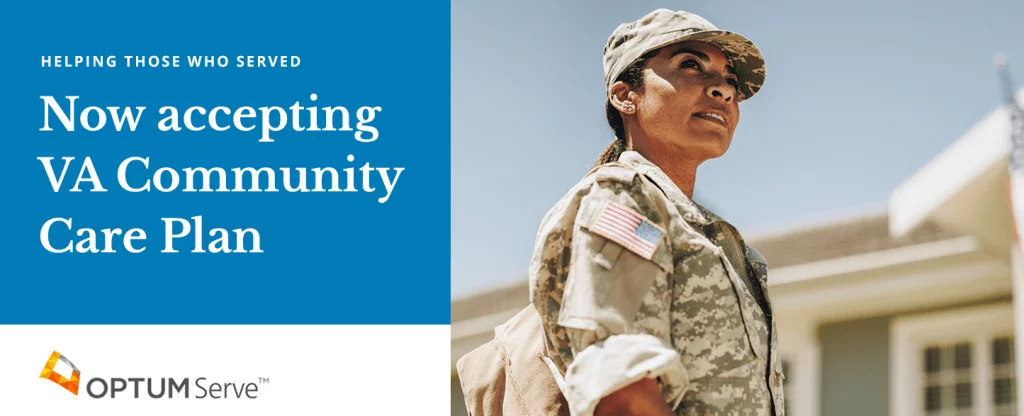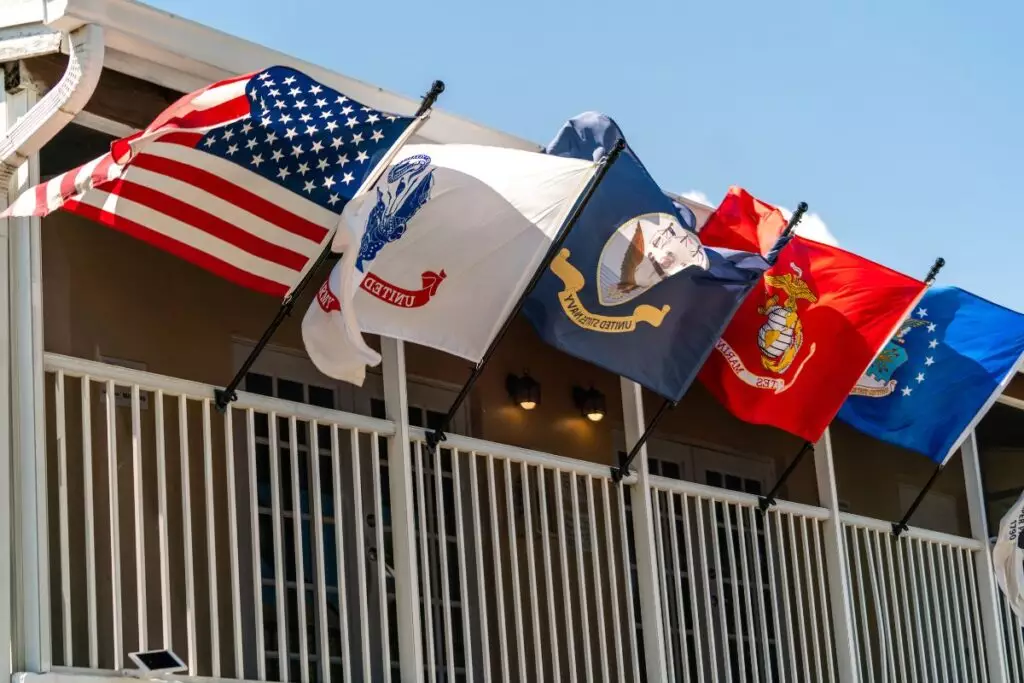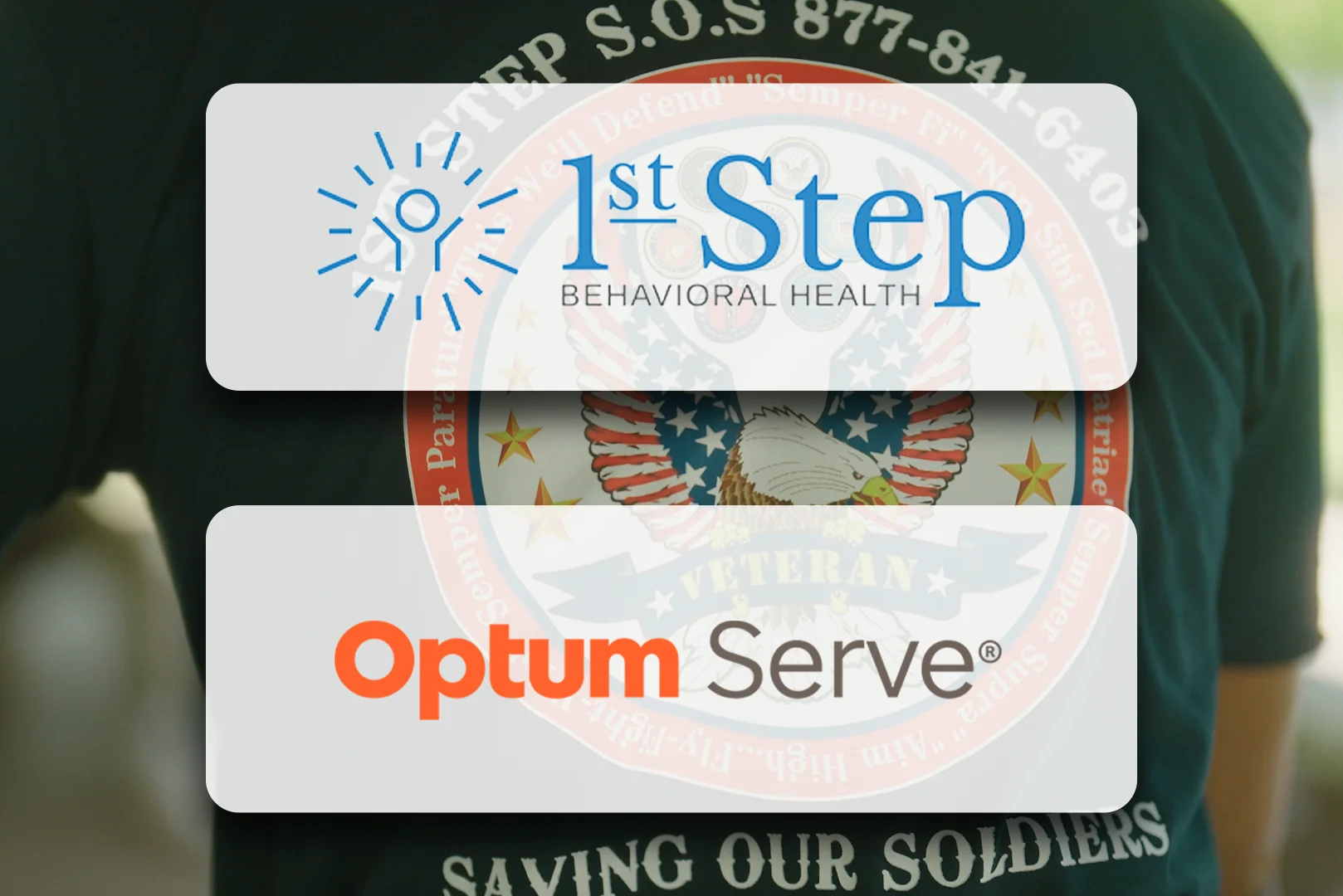Addiction Treatment Program for Veterans
1st Step’s addiction and mental health treatment program for veterans in Florida provides exceptional support and aims to ensure a full recovery, no matter what you or your loved one is struggling with. You may even be able to use your VA benefits to cover the costs of your care.

Veterans suffer from substance use disorder at an alarming rate. It’s estimated that 1 in 4 veterans who have a substance use disorder have struggled with illicit drugs, while 4 in 5 have struggled with alcohol use. In addition, 1 in 4 veterans struggle with a serious mental illness. These numbers are sobering, especially if you or a loved one is struggling with substance use disorder.
What Type of Rehab for Veterans Is Right for You?
Addiction treatment for veterans should always be individualized to meet your specific needs. As a veteran, you may be suffering from a wide range of conditions that make it very difficult for you to manage your day-to-day life. You may even be facing physical illness from substance use.
No matter your circumstances, if you struggle with some of the addiction and mental health problems veterans commonly face, you should call our admissions line at 1st Step Behavioral Health to see if your treatment is covered under your insurance.
Post-Traumatic Stress Disorder (PTSD)
It is very common for veterans to struggle with post-traumatic stress disorder (PTSD) as well as substance use disorder. When both conditions occur at the same time, which is called co-occurring disorders, individuals typically need to seek professional addiction treatment for veterans to address both conditions at one time.
Treatment for veterans with co-occurring PTSD and addiction requires a comprehensive and integrated approach. Veterans receive one-on-one counseling to explore the underlying factors contributing to both PTSD and addiction as well as group sessions to provide veterans with a supportive community of peers who understand their unique experiences. And, at 1st Step, our trauma-informed approach to addiction treatment is uniquely suited to meet the needs of veterans in Florida.
Pain Medication Addiction
Many veterans deal with chronic or debilitating pain after returning home from combat or deployment and are treated with prescription drugs like opioids. Oxycodone (OxyContin) and similar drugs can be extremely addictive, even if you take them as prescribed.
While not the veteran’s fault, opioid abuse can take over and turn into a hard-to-beat addiction leading to other serious substances, like heroin or fentanyl. Lastly, these drugs can put you at a high risk for overdose so it’s important to get treatment sooner rather than later.
For veterans grappling with pain medication addiction, our rehab program at 1st Step Behavioral Health recognizes the unique challenges associated with this type of substance use disorder. In addition to a safe, medically supportive detox, medication-assisted treatment (MAT) may be incorporated to assist veterans in managing cravings and preventing relapse.
Emotional Trauma and Substance Use
There are times when a person may suffer significant emotional trauma due to their experiences. This could come from psychological turmoil they’ve faced or military sexual trauma, and turning to substances is often the outcome of attempting to ease those thoughts and difficult experiences.
At 1st Step Behavioral Health, our trauma-informed approach recognizes the complex relationship between emotional trauma and substance use in veterans, providing specialized care to address the root causes of addiction while fostering emotional healing.
Alcohol and Illicit Drug Addiction
Although pain medication may be more common among veterans, that doesn’t mean other drugs and alcohol aren’t also used to numb the pain of PTSD and other military-related issues. Alcohol abuse is just as easy to fall into and has just as many negative effects on one’s life and family. When paired with other substances, alcohol and drugs can be a deadly combination.
Our comprehensive veteran’s rehab program in Florida is designed to address alcohol and illicit drug addiction, offering veterans the support and tools needed to break free from the cycle of substance dependence.
Bipolar Disorder
A common mental health issue among veterans that is often forgotten is bipolar disorder. Veterans with bipolar disorder can experience a range of symptoms, including noticeable swings in energy, mood, and behavior including manic or hypomanic episodes. If bipolar disorder is something you or a loved one is struggling with, dual diagnosis treatment might be the right option.
At 1st Step, our comprehensive care includes services and therapies to address both the substance use disorder and the underlying mental health issues, offering a pathway to stability and improved overall well-being for veterans.
Our Top-Rated Drug and Alcohol Rehab Program for Veterans in Florida
1st Step Behavioral Health has helped veterans struggling with substance abuse and mental health issues for over 20 years with a 99% approval rating from alumni. We treat each patient as if they are family and make sure they are given the individualized support needed to address their needs.
Making the decision to get help is not easy, but drug rehab for veterans can be very effective at helping to break physical dependence and work through the difficulties of mental health disorders. Treatment here is multi-faceted, including medications, cognitive-behavioral therapy, holistic therapy, and more. In the right compassionate setting, veterans can learn how to manage their addiction and build a healthy future for themselves.


How Your VA Insurance Can Help Pay For Veterans Addiction Treatment in Florida
1st Step has partnered with the VA Community Care Network to help veterans with OptumServe insurance who are struggling with mental health and substance abuse issues pay for treatment. If you have VA insurance through the VA Community Care Network, it’s likely that you can use it to help pay for treatment.
For men and women who served or are currently serving in the U.S. Armed Forces with a severe disorder, VA disability benefits may also help cover the cost of your care. That may include providing coverage for any co-occurring mental health disorder you have alongside substance abuse.
Compassionate Addiction Treatment for Florida Veterans
Treatment for mental health and substance abuse can provide you with a new start to your future. You deserve the highest level of care possible. You may not be sure what your future holds, but if you reach out to 1st Step’s addiction treatment center and speak to an admissions counselor, you will learn more about the treatment options available to you. That includes helping you pay for treatment using your VA Community Care Network Insurance plan through OptumServe.
Don’t wait any longer to seek the help you deserve. Give us a call at (855) 425-4846 or contact us today.
Take the First Step Today
We can help you get better. Contact us today to find out which program might be right for you, or to begin the process of arranging for treatment.
